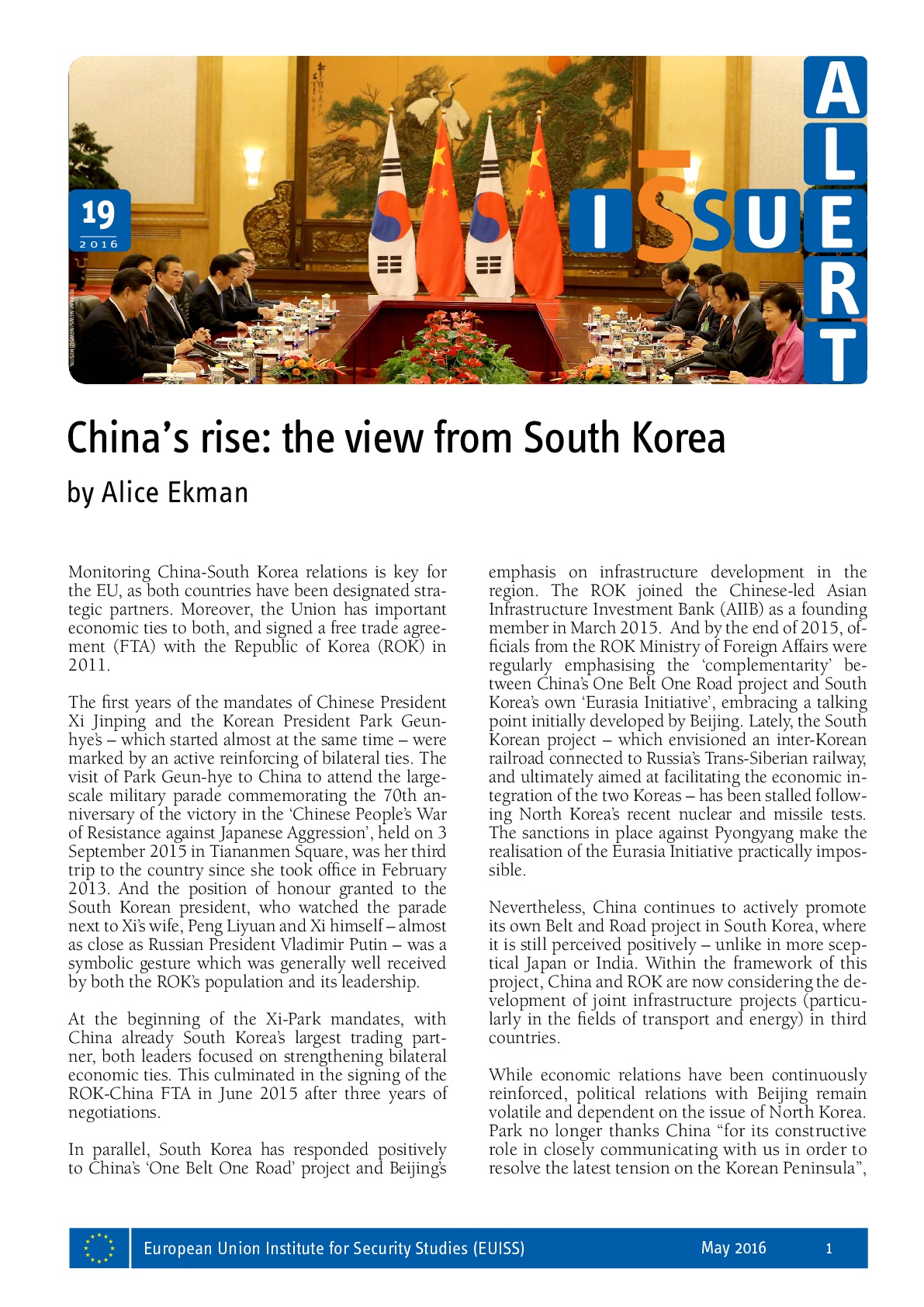China’s rise: the view from South Korea

Monitoring China-South Korea relations is key for the EU, as both countries have been designated strategic partners. Moreover, the Union has important economic ties to both, and signed a free trade agreement (FTA) with the Republic of Korea (ROK) in 2011.
The first years of the mandates of Chinese President Xi Jinping and the Korean President Park Geun-hye’s – which started almost at the same time – were marked by an active reinforcing of bilateral ties. The visit of Park Geun-hye to China to attend the large- scale military parade commemorating the 70th anniversary of the victory in the ‘Chinese People’s War of Resistance against Japanese Aggression’, held on 3 September 2015 in Tiananmen Square, was her third trip to the country since she took office in February
2013. And the position of honour granted to the South Korean president, who watched the parade next to Xi’s wife, Peng Liyuan and Xi himself – almost as close as Russian President Vladimir Putin – was a symbolic gesture which was generally well received by both the ROK’s population and its leadership.

Available in:
Regions and themes
Share
Download the full analysis
This page contains only a summary of our work. If you would like to have access to all the information from our research on the subject, you can download the full version in PDF format.
China’s rise: the view from South Korea
Related centers and programs
Discover our other research centers and programsFind out more
Discover all our analyses
RAMSES 2024. A World to Be Remade
For its 42nd edition, RAMSES 2024 identifies three major challenges for 2024.

France and the Philippines should anchor their maritime partnership
With shared interests in promoting international law and sustainable development, France and the Philippines should strengthen their maritime cooperation in the Indo-Pacific. Through bilateral agreements, expanded joint exercises and the exchange of best practices, both nations can enhance maritime domain awareness, counter security threats and develop blue economy initiatives. This deeper collaboration would reinforce stability and environmental stewardship across the region.

The China-led AIIB, a geopolitical tool?
The establishment of the Asian Infrastructure Investment Bank (AIIB) in 2016, on a Chinese initiative, constituted an attempt to bridge the gap in infrastructure financing in Asia. However, it was also perceived in the West as a potential vehicle for China’s geostrategic agendas, fueling the suspicion that the institution might compete rather than align with existing multilateral development banks (MDBs) and impose its own standards.
Jammu and Kashmir in the Aftermath of August 2019
The abrogation of Article 370, which granted special status to the state of Jammu and Kashmir (J&K), has been on the agenda of the Bharatiya Janata Party (BJP) for many decades.





